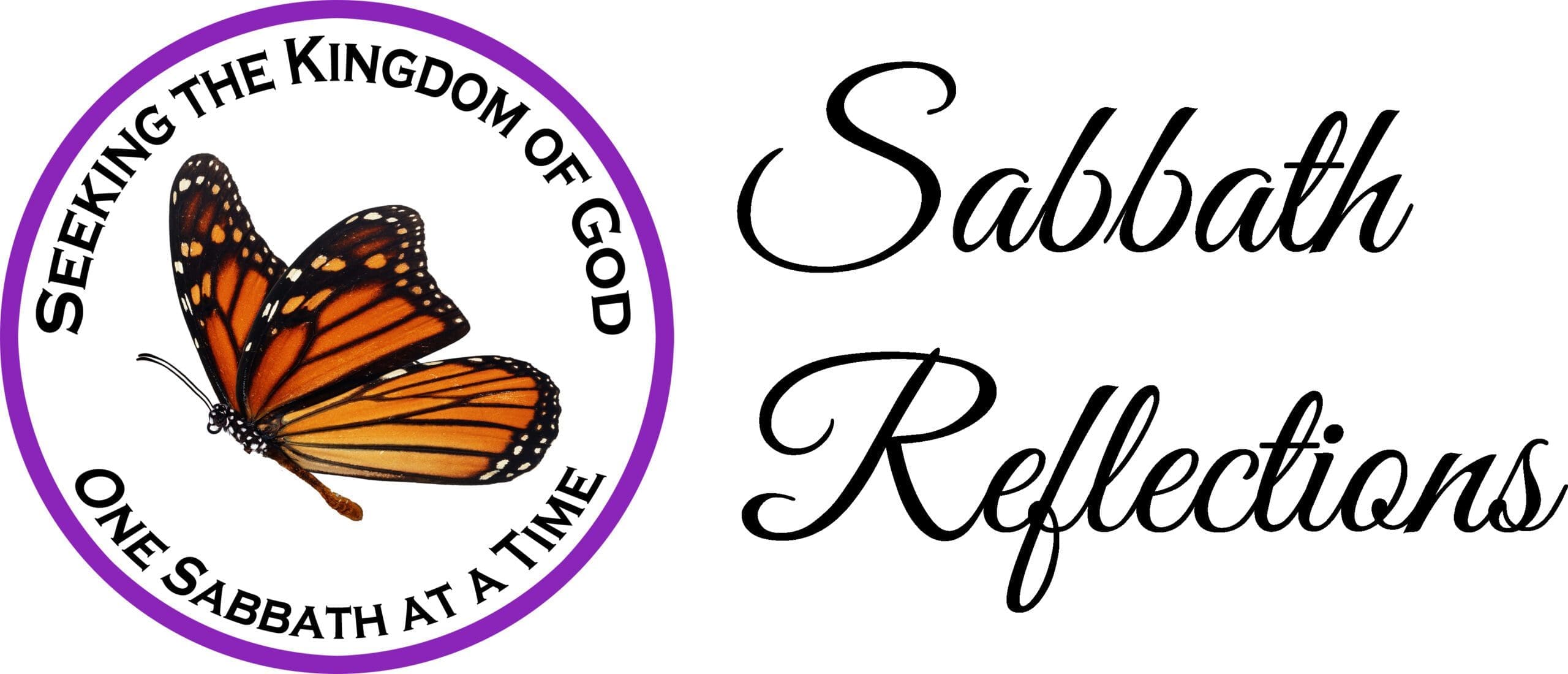SABBATH THOUGHT 2022-06-25—GARDEN IN EDEN
May God bless you on His Sabbath day!
This week we found a fawn that was several weeks old bedding down in our yard. Since it was not a newborn, it must have been moved there by its mother recently. Curious, I was able to get close enough to notice that it had injuries around its nose and eyes from being attacked, likely by coyotes that roam around or vultures or hawks.
AUTHOR’S NOTE: Before anyone suggests I call the wildlife department, there is little they could do except clean its wounds, nurse it until it is weaned, and then release it, hoping it survives on its own or finds a herd that accepts it (not usually the case). The mother, on the other hand, will keep the wounds cleaned, nurse it, and tend to it until it is ready to follow the doe herd. Also, the best protection for a fawn is to remain in its bed where the mother can find it. A doe does not stay with a fawn except to nurse it. A fawn has very little scent, unlike an adult doe, so it is difficult for a predator to locate one by scent alone. Its protection lies in concealment apart from the mother.
The constant battles of predator and prey are the way of nature. Even insects have a daily and nightly battle. Apparently, all of this is a continuation of the original Genesis creation. Notice where Adam was formed:
GENESIS 2:7-8, 15 Then the LORD God formed man of the dust of the ground, and breathed into his nostrils the breath of life; and man became a living being. 8 And the LORD God planted a garden eastward in Eden; and there He put the man [Adam] whom He had formed. … 15 And the LORD God took the man and put him into the garden of Eden to dress it and keep it.
Adam was originally formed from ground outside of the garden. Placing him in the garden provided Adam a very special place to live. Notice that God filled the garden with pleasant and good things:
GENESIS 2:9 And out of the ground the LORD God caused to grow every tree that is pleasant to the sight and good for food. The tree of life also was in the middle of the garden, and the tree of the knowledge of good and evil.
The garden was different from the rest of the world. When God formed the world, He filled it with every plant, animal, bird, fish, and insect that is both good and bad. However, God Himself intentionally and carefully planted the garden. In a garden, weeds, thorns, thistles, etc. are anything but desirable. God’s garden only included that which is “pleasant to the sight and good for food.” So the garden in Eden was a special place for Adam and Eve to live. It was also a safe place for them, free of dangerous plants, animals, and insects. If it was not, then it would be very uncomfortable considering that they were completely naked[1]. Where my wife and I live, clothes are sometimes not even enough to protect against just ticks, chiggers, and ants.
Notice that God created all these things before He planted the garden in Eden. Except for that singular place, from the beginning the world was a harsh environment in which to live. When God proclaimed everything He made was good, it must have been in the sense that nature was balanced by all that He made. Every physical thing has a lifespan—they live and die and return to dust. It was all in equilibrium.
God also made different types of animals. He created two categories: “livestock” and “beasts of the earth”:
GENESIS 1:24-25 And God said, “Let the earth bring forth living creatures after their kind—livestock, creeping things, and beasts of the earth—each after its kind.” And it was so. 25 And God made the beasts of the earth after their kind, and the livestock after their kind, and every creeping thing upon the earth after their kind. And God saw that it was good.
GENESIS 2:19-20 And out of the ground the LORD God had formed every animal of the field and every fowl of the air—and brought them to Adam to see what he would call them. And whatever Adam called each living creature, that became its name. 20 And Adam gave names to all the livestock, and to the birds of the air, and to every animal of the field, but there was not found a helper compatible for Adam.
“Livestock” and “animals of the field” (or “beasts of the earth”) are different. When used together, livestock refers to clean animals that can be eaten for food and were usually meant to be raised and bred on farms. In contrast, “animals of the field” are usually unclean. It applies to carnivores, herbivores, and omnivores but ones that are not meant to be eaten. Many times in the Bible it refers to dangerous animals. For example:
LEVITICUS 26:22 I will also send wild beasts among you which shall bereave you. And I will destroy your livestock, and make you few. And your highways shall be deserted.
The phrase “wild beasts” is from the same two Hebrew words as “animals of the field.” The same Hebrew words are also used when talking about the sheep (God’s people) being a prey to dangerous animals, i.e., “beasts of the field”:
EZEKIEL 34:5, 8 And they were scattered for lack of a shepherd. And they [the sheep] became food to all the beasts of the field when they were scattered. … 8 “As I live,” says the Lord GOD, “surely because My flock became a prey, and My flock became food to every beast of the field because there was no shepherd, nor did My shepherds search for My flock, but the shepherds fed themselves and did not feed My flock,”
Because the earth can be a harsh environment, God put Adam and Eve into a protected garden with only the most beautiful and fruitful plants and beneficial weather. The Bible does not specify, but any animals in the garden were likely not a threat to them. However, after they sinned, God gave Adam and Eve animal skins to wear. This was just prior to expelling them from the garden[2] because they needed clothes to protect them outside of it. From the time they were created, God intended to provide a protected place for them to live and prosper. But all of that changed when they sinned. Since then, mankind has had to deal with dangerous and harmful animals, poisonous plants, biting insects, weeds, thorns, thistles, etc. In addition, there can be hazardous and destructive weather. The world is, to say the least, not a kind and gentle place at times.
Who wouldn’t like to live in God’s garden? Enjoying beautiful things is part of who we are—most people plant their properties with beautiful flowers, trees, vegetable plants, grass, etc. The problem is, as all gardeners know, it is a continual job to keep out weeds, insects, and animals that would otherwise destroy them. Weather can also be a problem—the drought of summer can quickly kill off a garden, flowerbed, or lawn. In other words, it is a constant battle to keep a garden or yard beautiful.
Our lives are similar. Within believers is the seed of the beauty of God’s holiness[3]. God planted that seed when He gave us His Holy Spirit. We are God’s garden[4] and, like all gardens, we need to tend it with care. We know to watch for the worst dangers such as false doctrines. We also try hard to be cognizant of Satan’s devices[5] so we can avoid idolatry or breaking the Sabbath among his many never-ending temptations. In other words, the threat of the “beasts of the field” are many, but sometimes they are also the easiest to see and avoid. Just like big animals, we can protect ourselves with a spiritual “fence”.
However, there are many “creeping things” that we need to watch for. No fence can guard against them. And even if it did, a garden requires insects such as butterflies and bees to pollinate, lady bugs to eat aphids, and earthworms to compost it. The hard part is keeping out the caterpillars, moles, squirrels, rabbits, and other things that easily slip through a fence. Maintaining our gardens in Satan’s world is an entirely different matter than those protected by God in a special place such as Eden.
That is why there is a greater reward for the firstfruits. We are “gardens” that we must tend in the face of our enemy, Satan, who wants to destroy the fruits we try so hard to produce. Future children of God will not have to deal with those same threats, so the firstfruits face the greater challenge. The reality is that we seek to become a beautiful garden to God in the midst of evil. Without us, the world would be one full of ugly and useless plants. Look at the garden God is preparing in heaven:
REVELATION 22:1-2 Then he showed me a pure river of the water of life, clear as crystal, flowing out from the throne of God and of the Lamb. 2 And in the middle of the street, and on this side and that side of the river, was the tree of life, producing twelve manner of fruits, each month yielding its fruit; and the leaves of the tree are for the healing of the nations.
The Tree of Knowledge of Good and Evil still exists upon this earth—it was never removed by God. While it was likely a beautiful tree, the fruit of it is poisonous and deadly. The Tree of Life, on the other hand, was “transplanted” from the garden in Eden after Adam and Eve’s sin to the new garden in heavenly Jerusalem[6]. There are now more than one and they line the street and river in front of God’s throne. The fruit and leaves of the Tree of Life provide the only cure for the poison of the fruit of the Tree of the Knowledge of Good and Evil.
Those God has called and chosen are now on a journey away from the Tree of Knowledge of Good and Evil to find the Tree of Life. We desire to eat the fruit of it and be healed forever. However, the trek is narrow and difficult[7] because the path is strewn with all manner of dangerous plants, animals, and insects. This world is not a garden of God’s choosing, but one tended by Satan to trip us up, cause us injury, or afflict us with deadly poison. It is sometimes hard to see very far ahead, but we know the destination ends at the Tree of Life. And when we arrive, we will eat of the most delicious fruit and be healed for ever and ever and ever. Amen.
REVELATION 22:14 Blessed are those who keep His commandments, that they may have the right to eat of the tree of life, and may enter by the gates into the city.
May God’s grace and peace be upon you!
Steven Greene
https://sabbathreflections.org


